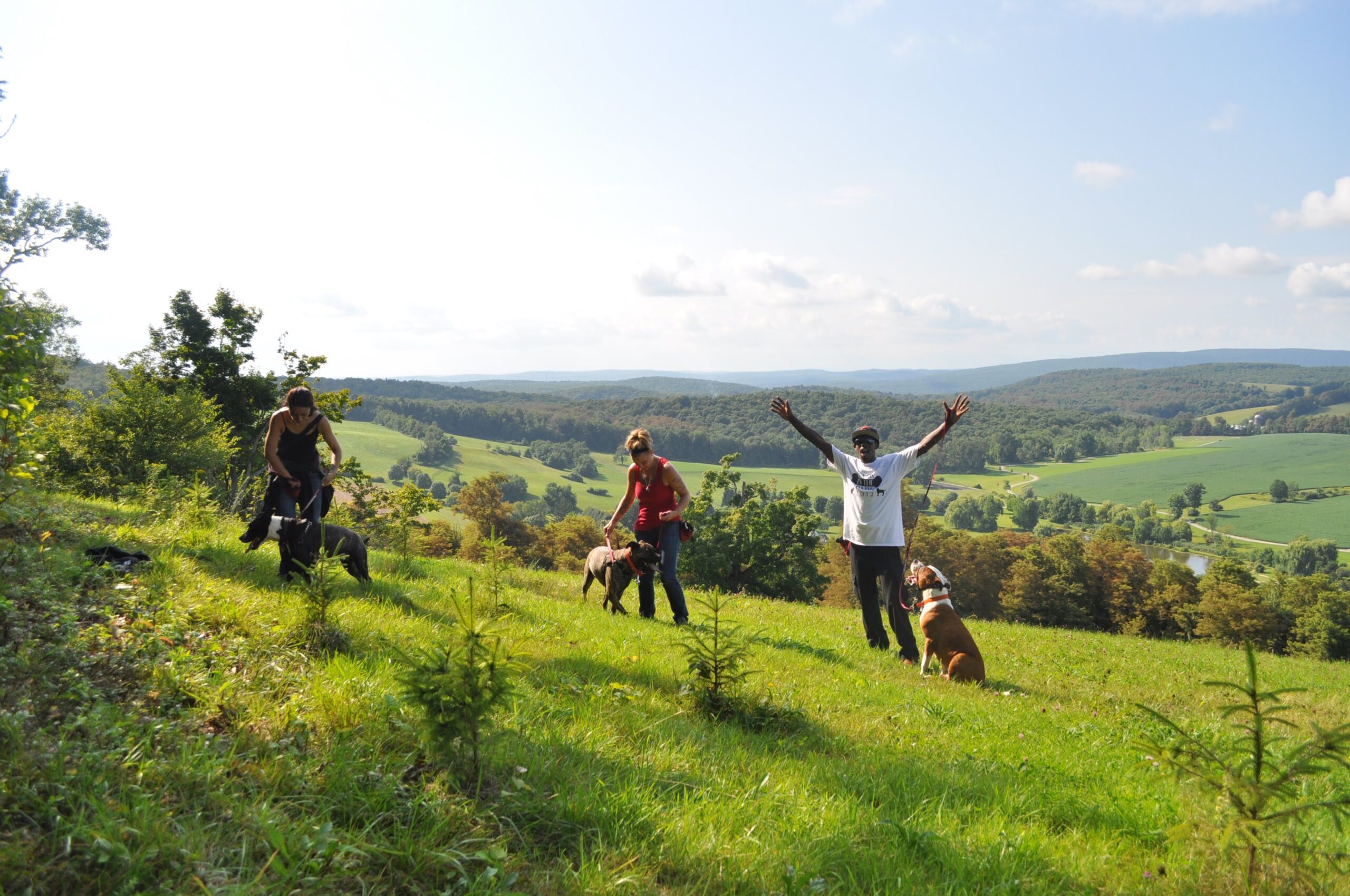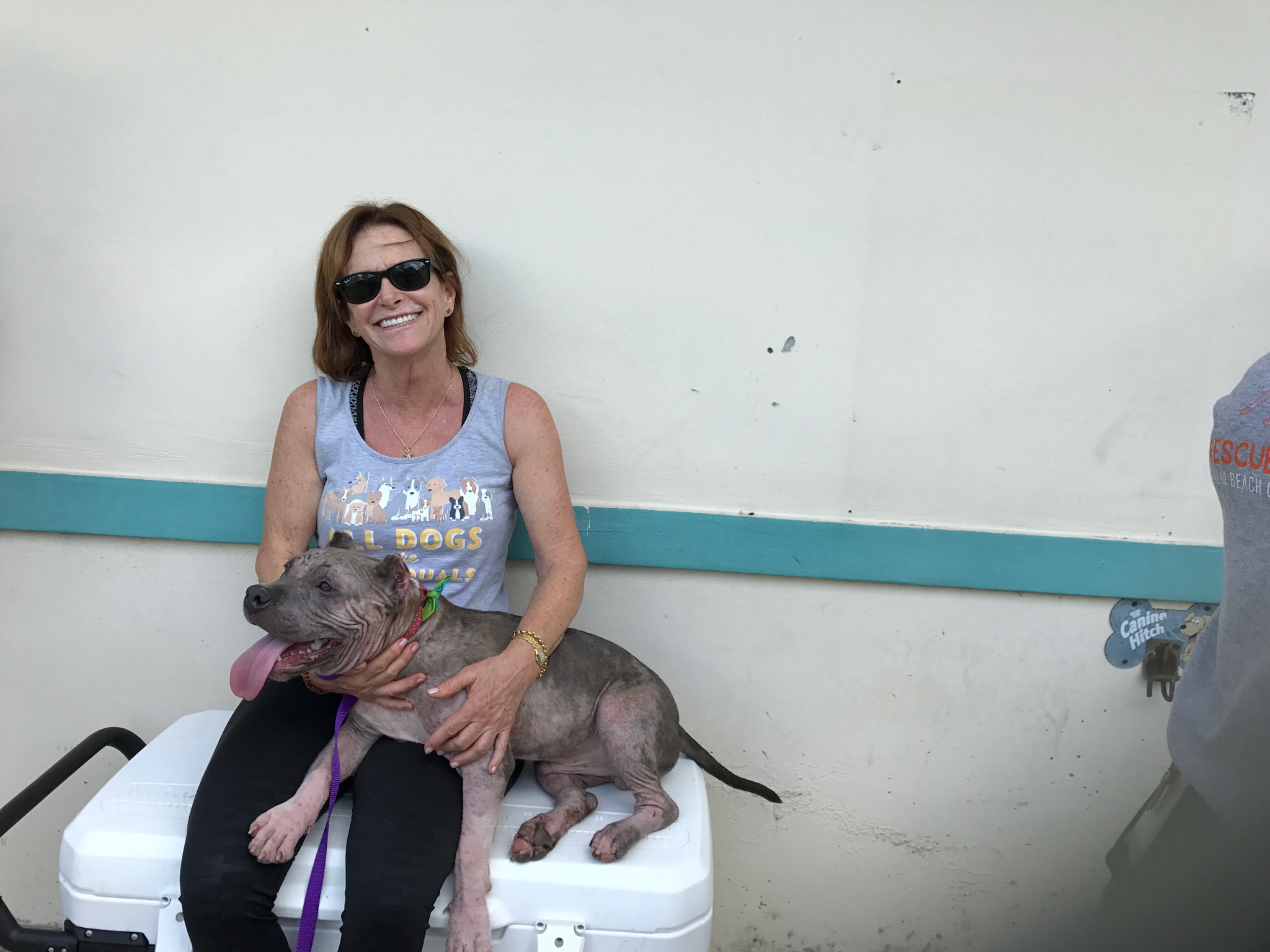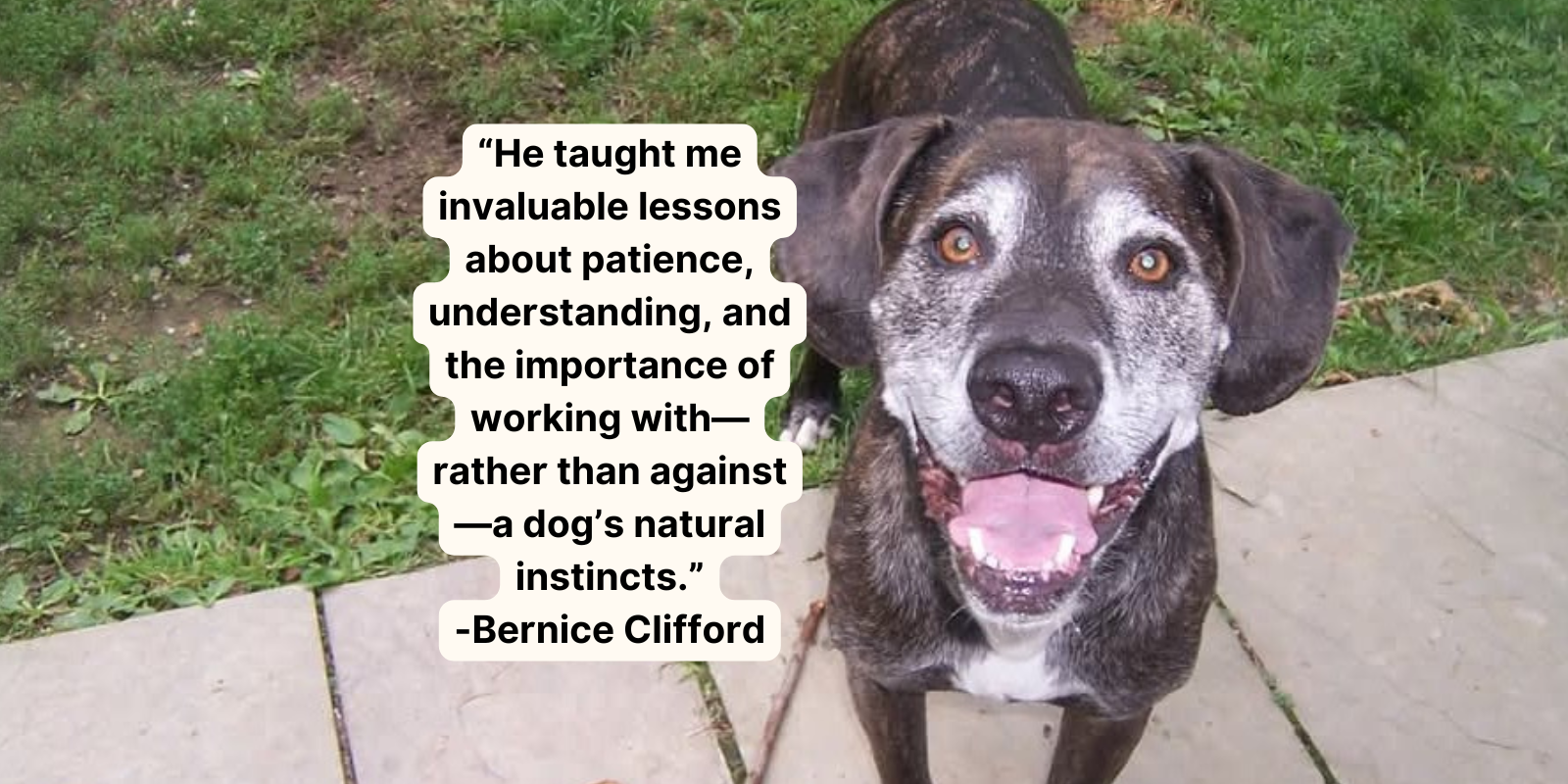Here at Animal Farm Foundation our grants program is constantly evolving to keep up with the changing needs in animal welfare. Where in the past we funded exclusively to “pit bull” specific programs, today our focus has shifted towards granting to programs that are inclusive of “pit bull” dogs, but are not exclusive to them. This approach reflects the many changes in animal welfare we’ve been a part of over the past two decades.
Today, programs that treat all dogs as individuals are the path to a better future for ALL dogs. One of the types of programs we’re most happy to see are ones in which a safety net is created for all pets within the community through the offering of a variety of owner support services.
Pit Sisters, one of grant award recipients, is doing just that! Their unique pilot program, Mobile Training, is offered in targeted areas of Jacksonville, FL where the highest rate of pet surrenders are generated from. Their Mobile Training Program provides dog training at no cost to the owners, so that families can keep their dogs at home, where they are wanted and loved, rather than surrendering them due to training issues.
We had the chance to talk with Jennifer Deane, founder of Pit Sisters, about their program.
AFF: Can you tell our readers about how the mobile training program works?
Pit Sisters: We work in partnership with two of our local shelters to determine the areas of town to focus in. We target the areas that have the highest numbers of dogs turned in to the shelters and we offer free training for families and their dogs. We constructed a book of training tips in conjunction with several area training experts that are easy to use and have lots of ideas for inexpensive solutions, including a treat suggestion sheet and toy suggestion sheet using everyday items.
Why did Pit Sisters decide to focus on supporting this particular area (dog training) of the human-canine bond in your community?
We decided to focus on training because we were receiving lots of emails from families who wanted to keep their dogs, but the dogs needed training. Hiring a trainer can be expensive and we know how important building the bond between the family and the family dog(s) is, so we decided to focus on training. There are no programs like ours in our community, so we felt that we could fill a gap with a much-needed service.
Your program does a great job of viewing all dogs and their families as individuals – no stereotypes or judgement allowed! Instead, you focus on getting to know their individual needs, so you can better address whatever issues might be barriers to the dogs staying in their homes.
How has that approach been helpful for you and your clients? Can you share how you’ve built trust between your program/trainers and the community you’re serving?
Building trust has been the most challenging part and we continue to work on that. I think what helps a lot is our partnerships with our local shelters and other animal welfare organizations, as well as local businesses. They help us to get the word out by distributing information and telling people about the program. One of the low cost animal clinics even gave us coupons for a free office visit for participants in our program. This is approach works incredibly well. All of our trainers have caring, nonjudgmental attitudes, and as such are well received by the community.
Can you share a success story with us?
Sure! We had a family with two dogs come to us – one of the dogs was highly reactive to other dogs and the other had separation anxiety. When we met the owners they were frustrated and didn’t know what to do. And they couldn’t afford to pay a trainer. Because of our program, they were able to get the help they needed. Our mobile trainer gave them advice and worked with both dogs. We met with the family for quite a bit and watched them practice the techniques that we taught them and then we followed up with them to see how things were going. The dogs are doing much better and the family is volunteering with us now as well!
If someone wanted to start a similar program in their community, what advice would you give them?
Form strong relationships with your local animal shelters and animal welfare organizations! Pit Sisters would like to help others start similar programs, so we’re willing to talk to anyone who may be interested in starting their own program. They can email us at sisters@pitsisters.org for more information.
***
Thank you for talking with us Jen and for the great work you’re doing in your community! For more information about Pit Sisters, please visit their website. And for information about our Grants program, please visit the Animal Farm Foundation site.








